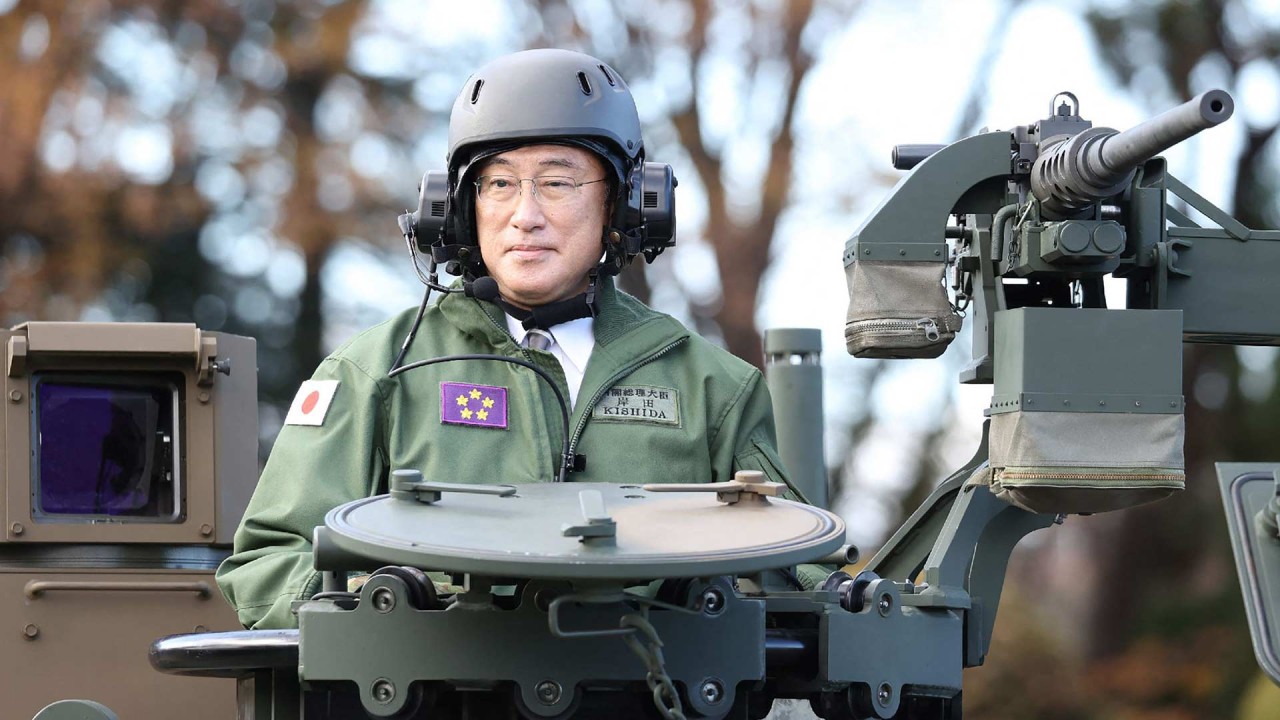
Can doubling the military budget make Japan more secure?
- Tokyo aims to double its defence outlays over the next five years that could propel it from ninth in the world for military spending to a third spot behind the US and China
- But analysts warn Japan may not achieve the results it is hoping for and the plan could appear ‘threatening to others in the region’
Outlays of that scale could propel Japan from ninth in the world for military spending to a likely third spot behind the US and China, according to data from the Stockholm International Peace Research Institute, or SIPRI, which tracks defence spending.
Beyond just buying pieces of hardware, Japan faces pressure to spend more on less visible items like pay rises, ammunition, spare parts and logistics.
“Probably most people imagine that if we double the defence budget, we will get a whole lot more equipment,” said retired vice-admiral Toshiyuki Ito, now a professor at Kanazawa Institute of Technology. “But it’s not just a question of buying more stuff.”
China has provided a reminder of what’s at stake by firing ballistic missiles that landed near Japan’s southwestern islands during military manoeuvres around Taiwan this month. Kishida has warned that Taiwan is at the frontline of the stand-off between China and the US and a contingency in the Taiwan Strait would have enormous consequences for Japan.
Japan has traditionally kept its defence budget to about 1 per cent of gross domestic product, relying on the US “nuclear umbrella” to back up its own capabilities under a pacifist constitution. But, in an unusual move, no cap will be placed on expenditure requests at this point, the Mainichi newspaper and other media have reported.
While the initial defence ministry request for fiscal 2023 will mark a relatively modest increase to 5.5 trillion yen (US$40.2 billion), Kyodo News reported, the final figure is expected to go higher as unspecified costs for about 100 items are finalised.
Despite his career in the maritime division of SDF, Ito doesn’t see a need for more warships. Tokyo must improve pay for its troops or it would struggle to find enough pilots even if it expanded its fleet of fighter jets, he added.
If there’s more cash, Ito advocates spending on nontraditional items such as recruiting “white hat” hackers to help protect power networks.
Japan cannot make itself more secure just by increasing its defence spending
Japan’s SDF has about 16,000 fewer personnel than envisaged in the budget. That shortfall is partly due to a lack of age-appropriate candidates in the world’s most elderly country, but also a parsimonious attitude to pay, according to experts.
“Personnel management and the overall well-being of the Japanese military personnel should take centre stage,” said Alessio Patalano, professor of war and strategy in East Asia at Kings College London, who described current SDF pay and support as “just not adequate.”
A university graduate joining the forces at officer level gets a salary of about 3.6 million yen (US$26,400) in the first year, rising to 6 million by the age of 40, according to the defence ministry. This may be supplemented by allowances for dangerous postings. A US army officer is likely to be on about US$62,000 after four years’ experience.
Concerns that Japan may lack staying power if a conflict breaks out should be addressed by building up stockpiles of ammunition, fuel and parts, as well as logistics units, according to Corey Wallace, an assistant professor at Kanagawa University in Yokohama.
Plans for a hike have met a positive reaction in opinion polls following the outbreak of war in Ukraine, with about 50 per cent of respondents to a June survey by Jiji Press approving of an increase. Nevertheless, most balked at a doubling the budget in the world’s most heavily indebted country.
That split over the extent of the change could spark a political stand-off, said Aurelia George Mulgan, a professor specialising in Japanese politics and regional security at the University of New South Wales.

She sees a “possible battle down the road” between Kishida and his new Defence Minister Yasukazu Hamada, who may seek to keep spending under control, and hawks in the ruling Liberal Democratic Party.
Meanwhile, some warn bolstering defences may not achieve the results Japan is hoping for, unless it’s accompanied by the right diplomatic and economic policy.
“Japan cannot make itself more secure just by increasing its defence spending,” said Naoko Aoki, non-resident senior fellow at the Atlantic Council Asia Security Initiative. “Enhancing Japan’s defence capabilities could appear threatening to others in the region, leading them to respond in kind and leaving no one better off than before.”


